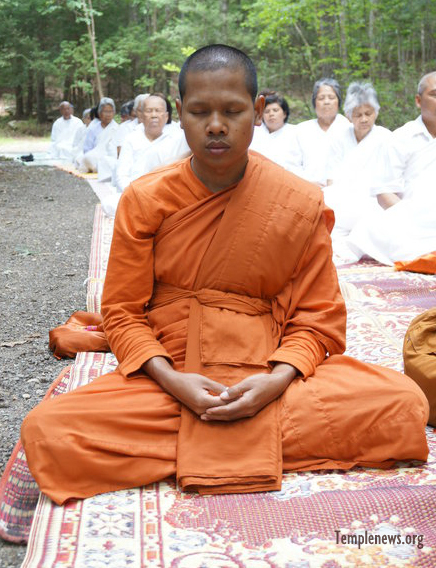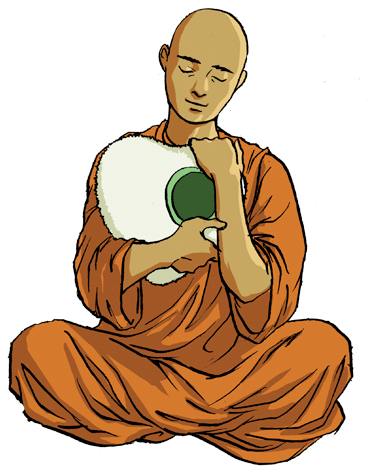-
Comment July 26, 2012
-
Squirrels are familiar to almost everyone
Comment July 25, 2012By National Geographic
Squirrels are familiar to almost everyone. More than 200 squirrel species live all over the world, with the notable exception of Australia.
The tiniest squirrel is the aptly named African pygmy squirrel—only five inches (thirteen centimeters) long from nose to tail. Others reach sizes shocking to those who are only familiar with common tree squirrels. The Indian giant squirrel is three feet (almost a meter) long.
Like other rodents, squirrels have four front teeth that never stop growing so they don’t wear down from the constant gnawing. Tree squirrels are the types most commonly recognized, often seen gracefully scampering and leaping from branch to branch. Other species are ground squirrels that live in burrow or tunnel systems, where some hibernate during the winter season.
Ground squirrels eat nuts, leaves, roots, seeds, and other plants. They also catch and eat small animals, such as insects and caterpillars. These small mammals must always be wary of predators because they are tasty morsels with few natural defenses, save flight. Sometimes groups of ground squirrels work together to warn each other of approaching danger with a whistling call. Continue reading
-
10 miracle healing powers of grapes
Comment July 24, 2012By Michelle Schoffro Cook | July 12, 2012
Research continues on the vast health benefits of resveratrol, found in purple or red grapes. Here are some of the amazing healing benefits of resveratrol:
Power Up Your Weight Loss: Exciting research led by MaryAnne DellaFera, PhD at the University of Georgia found that resveratrol (particularly when combined with soy isoflavones) works on the body in two ways to significantly assist with weight loss efforts: 1) it dramatically reduces cells’ ability to store fat by about 130 percent; and 2) causes fat cells to disintegrate at a rate 246 percent higher than normal.
Protect Your Heart: In research, resveratrol demonstrated the ability to improve the dilation of blood vessels, which may allow blood to flow more easily through blood vessels. It has also been shown to relax the walls of the blood vessels, making their diameter larger, thereby lowering blood pressure, and allowing a higher volume of blood to flow through all areas of the body, delivering increased oxygen and nutrients to the body’s cells. Another study found that just 10 mg of supplementary resveratrol resulted in a dramatic reduction in heart-attack risk factors.
Mop Up Brain Damaging Plaques: Studies at the University of Switzerland proved resveratrol’s brain-protecting ability. They found that resveratrol mopped up brain-damaging plaques and free radicals, which have been linked to Alzheimer’s disease. So powerful is this important nutrient that it has even been referred to as “Reverse-it-all” by many health practitioners. Continue reading
-
Meditate daily
Comment July 23, 2012 -
Rationality and Emotion
Comment July 23, 2012If you love rational thought and are attached to ideas and perceptions, then you tend to despise the emotions. You can notice this tendency if, when you start to feel emotions, you say, ‘I’m going to shut this out. I don’t want to feel those things.’ You don’t like to be feeling anything because you can get into a kind of high from the purity of intelligence and the pleasure of rational thinking. The mind relishes the way it is logical and controllable, the way it makes sense. It is just so clean and neat and precise like mathematics – but the emotions are all over the place aren’t they? They are not precise, they are not neat and they can easily get out of control.
So the emotional nature is often despised. We are frightened of it. For example, men often feel very frightened of emotions because we are brought up to believe that men do not cry. As a little boy, at least in my generation, we were taught that boys do not cry so we’d try to live up to the standards of what boys are supposed to be. They would say, ‘You are a boy’, and so we’d try to be what our parents said we should be. The ideas of the society affect our minds, and because of that, we find emotions embarrassing. Here in England, people generally find emotions very embarrassing; if you get a little too emotional, they assume that you must be Italian or some other nationality.
If you are very rational and you have figured everything out, then you don’t know what to do when people get emotional. If somebody starts crying, you think, ‘What am I supposed to do?’ Maybe you say, ‘Cheer up; it’s all right, dear. It’ll be all right, there’s nothing to cry about.’ If you are very attached to rational thoughts, then you just tend to dismiss it with logic, but emotions do not respond to logic. Often they react to logic, but they do not respond. Emotion is a very sensitive thing and it works in a way that we sometimes do not comprehend. If we have never really studied or tried to understand what it is to feel life, and really opened and allowed ourselves to be sensitive, then emotional things are very frightening and embarrassing to us. We don’t know what they are all about because we have rejected that side of ourselves.
-
As human beings we are all the same
Comment July 23, 2012As human beings we are all the same. We have this marvelous intelligence, which sometimes creates problems for us, but when influenced by warm-heartedness can be very constructive. In this context we need to appreciate the value of having moral principles. ~Dalai Lama
-
A moment of laughter with elders
Comment July 22, 2012 -
Those who are free of resentful thoughts…
Comment July 22, 2012 -
Wat kirivongsa Bopharam
Comment July 22, 2012 -
Our personal consumer choices
Comment July 21, 2012











